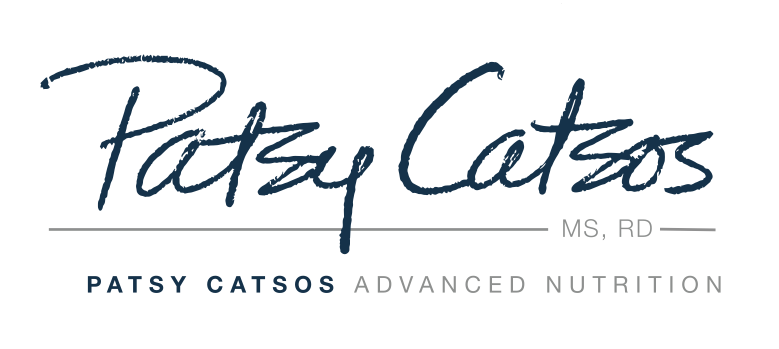Can a low FODMAP diet help other conditions?
There are a great many nutrition-related digestive problems, including celiac disease, non-celiac gluten sensitivity, small intestinal bacterial overgrowth, gastroparesis, functional dyspepsia, inflammatory bowel disease and gastroesophageal reflux disease (GERD). Will a low-FODMAP diet help any of them? It might help you if you are having IBS-like symptoms, though there is less proof of effectiveness for conditions other than IBS. In fact many people have IBS in addition to other GI conditions! Your own doctor and dietitian can help you decide if a short trial of a low FODMAP diet might be warranted. In most cases the diet will need to be adapted by a qualified dietitian to meet the needs of your condition.
Inflammatory bowel disease (IBD): It appears unlikely that a low-FODMAP diet is capable of inducing or maintaining remission in patients with Crohn's disease or ulcerative colitis. Still, a low-FODMAP diet might still be able to help manage symptoms and improve quality of life. People with IBD can also have IBS. When patients with Crohn's or ulcerative colitis in remission are still symptomatic, IBS and FODMAPs could be to blame. During an flare-up of IBD, it stands to reason that one should limit foods that might cause osmotic diarrhea on top of the IBD symptoms. For example, it doesn't make sense to replace fluids during bouts of diarrhea with high FODMAP beverages, such as fruit juice or regular milk. The texture of foods on the diet might need to be modified if it is being used during a flare (less roughage). Patients with IBD may want to approach reintroduction of FODMAPs with more caution than other people.
Celiac disease (CD): People with celiac disease are far more likely to have IBS than other people. If you have celiac disease, eat a gluten-free diet, and still experience excess gas, abdominal pain, bloating, diarrhea or constipation, FODMAPs could be to blame. First, though, talk with your doctor to make sure your celiac blood tests reflect a 100% gluten-free diet and ask an expert in gluten-free eating to review your diet for hidden sources of gluten. Then consider a trial FODMAP-elimination diet to see if your symptoms improve. Be especially watchful of FODMAP ingredients added to boost the fiber content of gluten-free breads and baked goods. Of course, people with celiac disease should continue to choose gluten-free versions of all foods during all phases of the elimination diet process.
Non-celiac wheat sensitivity (NCWS): A person with NCWS has observed that he or she has a bad reaction to gluten, even though celiac disease has been ruled out. There is no biomarker (specific test) to confirm the diagnosis of NCWS. This condition reportedly accounts for over half of the patients seen in celiac specialty clinics. It is often the case that gastrointestinal symptoms attributed to gluten might really be due to the FODMAPs present in gluten grains (fructans). The reintroduction process of the FODMAP diet can be modified to reintroduce gluten and gluten grains separately from other sources of fructans to help figure this out.
Small intestinal bacterial overgrowth (SIBO): Healthy people have very few bacteria living in their small intestines. If an overgrowth of bacteria in the small intestine develops, which can happen for a variety of reasons, IBS-like symptoms can occur. Research is ongoing to determine the best ways to diagnose and treat SIBO, and to find out how many people previously diagnosed with IBS actually have SIBO. Firm practice guidelines don't exist yet, but antibiotic treatment shows the most promise. It seems likely that a diet low in rapidly fermentable carbohydrates, such as a low-FODMAP diet, would discourage relapse of SIBO after antibiotic treatment. However, there have been no scientific experiments yet to prove whether this or any other diet is best for people with SIBO. My SIBO patients generally find symptoms are well managed on a low-FODMAP diet, modified to limit added sugars to a minimum.
Gastroesophageal reflux disease (GERD): GERD is a very common condition; a great many people with IBS also have GERD. FODMAPs exert their direct effect in the lower part of the gastrointestinal tract, and FODMAP studies have not looked at GERD symptoms, such as heartburn, directly. Still, many people do report fewer GERD symptoms on the FODMAP-elimination diet. With less excess gas and fluid distending the intestines, perhaps there is less upward pressure on the stomach to encourage reflux. Or perhaps the extra attention to healthy food choices and smaller portions during the low-FODMAP diet reduces reflux.
““IBS: Free at Last” is not aimed at those with severe bowel disease, but I can tell you it is well worth reading this book and trying the FODMAP diet anyway. For years my husband has suffered the ghastly symptoms of severe ulcerative colitis, unable to work out why some foods this week set it off when they were fine last week. In desperation, we tried the FODMAP diet as set out in this book and the results have been amazing. My husband’s horrid symptoms disappeared within 4 days of starting the elimination diet. He has been continually free of the horrid symptoms for two months now and feels terrific - like a man 20 years younger, he says. I have noticed a huge change in his outlook on life - he is much more confident and cheerful. A recent colonoscopy confirmed that he still has severe Ulcerative Colitis, and we knew the FODMAP diet would not cure him of that. But the FODMAP diet has given us a good solid basis from which to control the symptoms. Patsy, I can’t thank you enough. This diet has changed our lives.”


